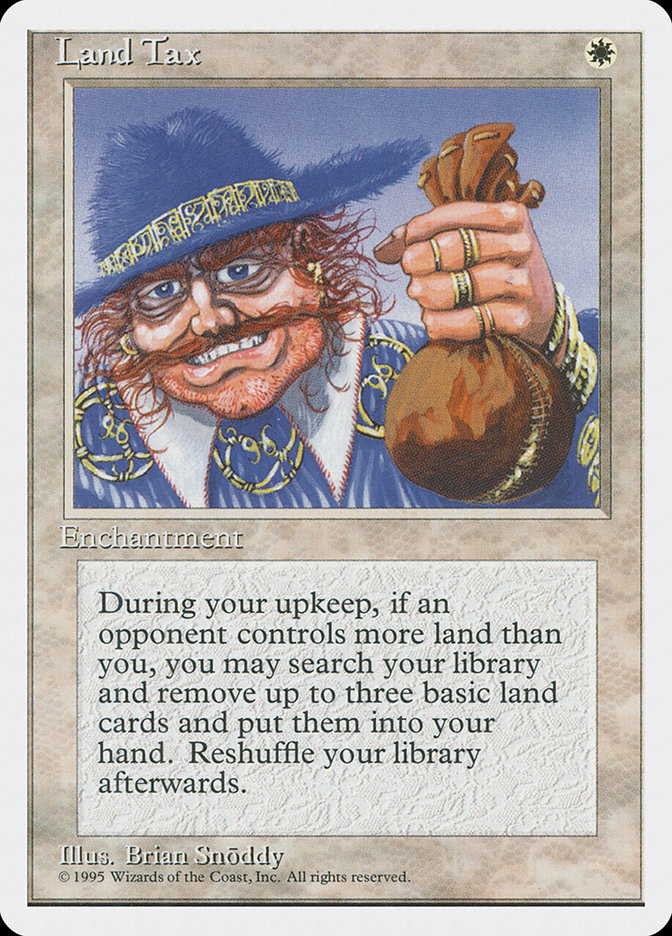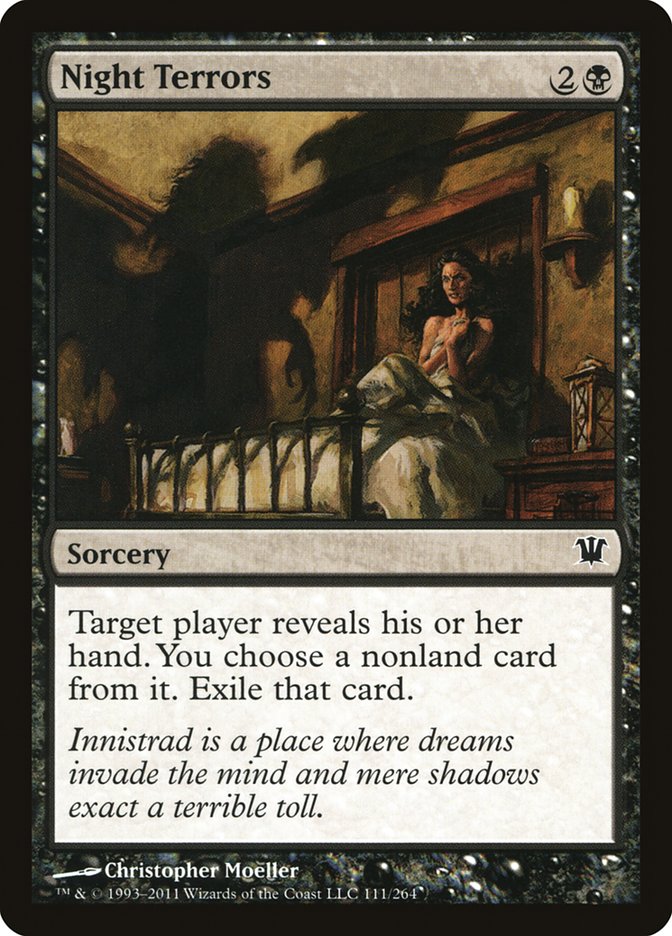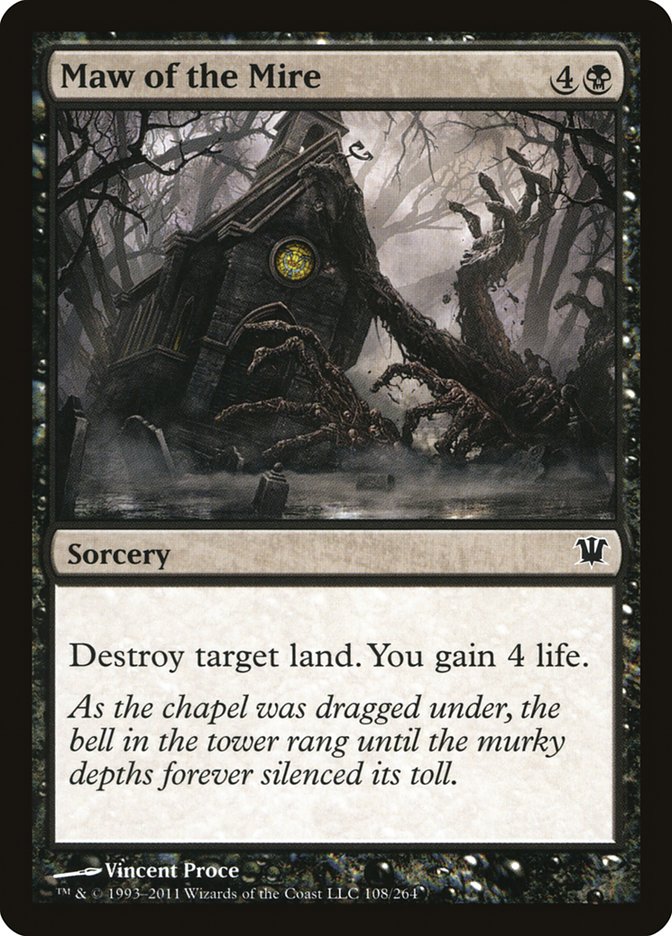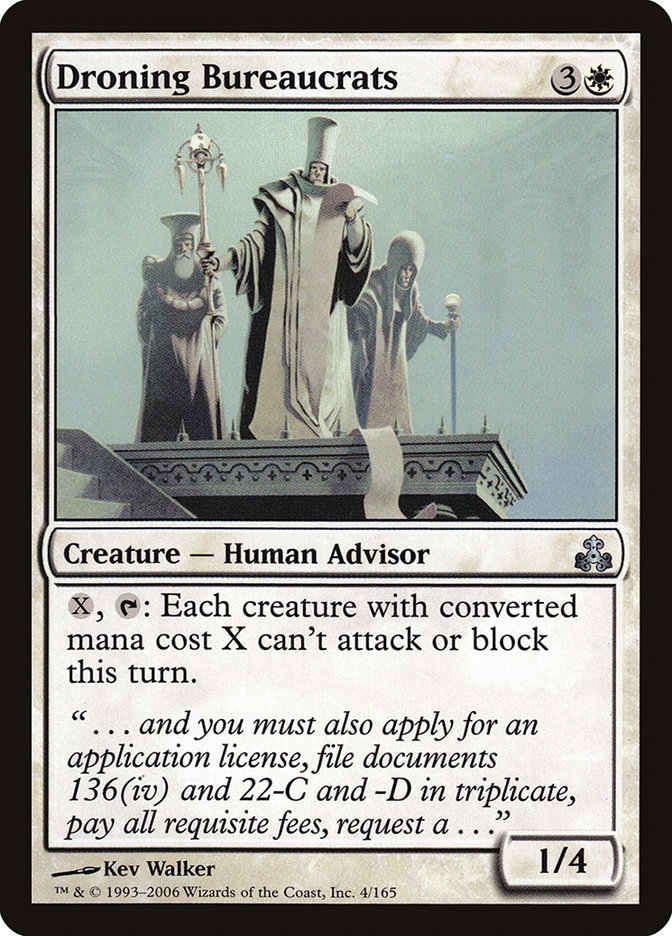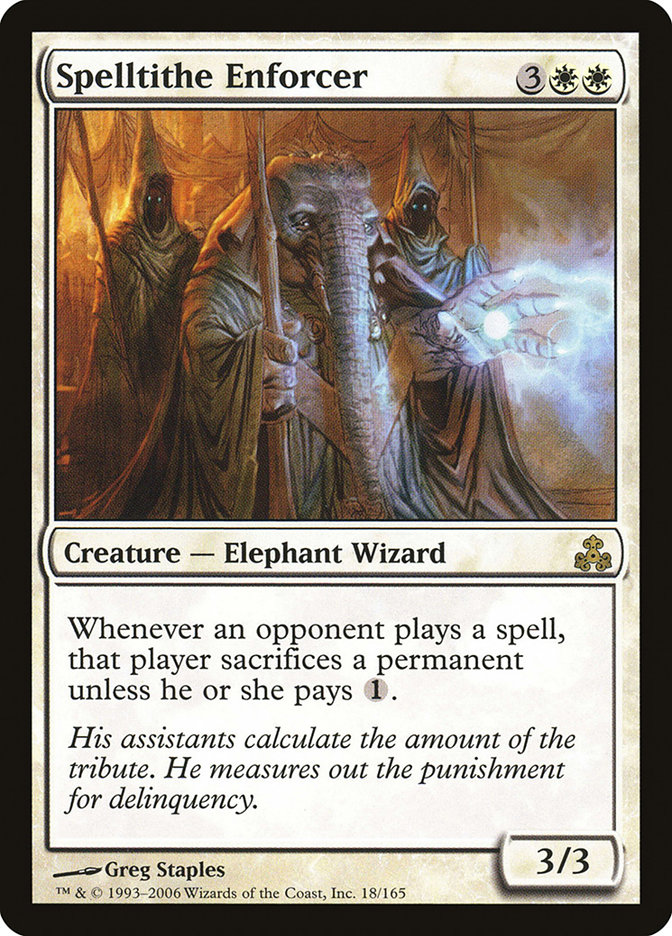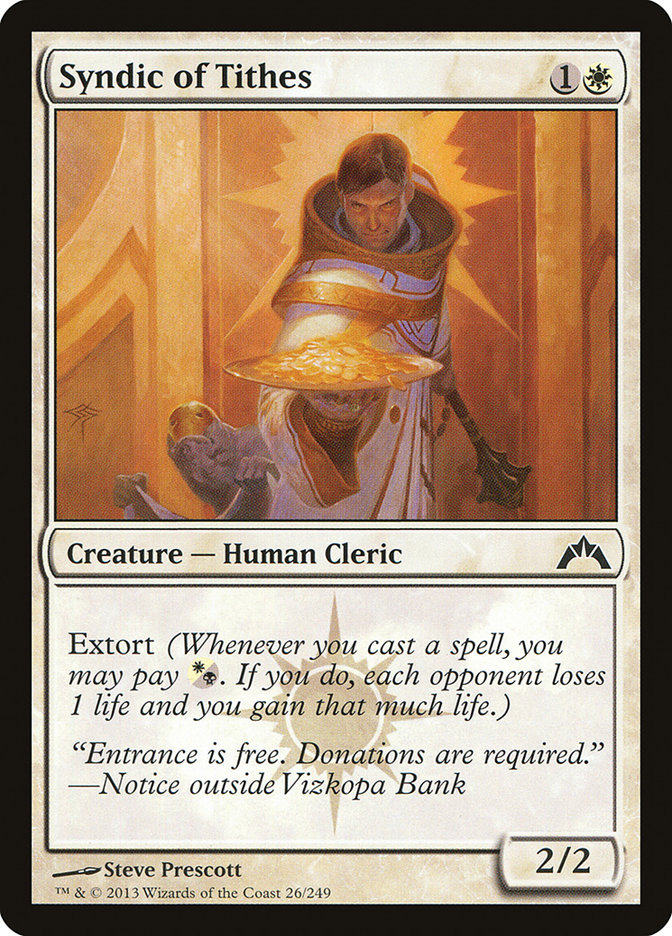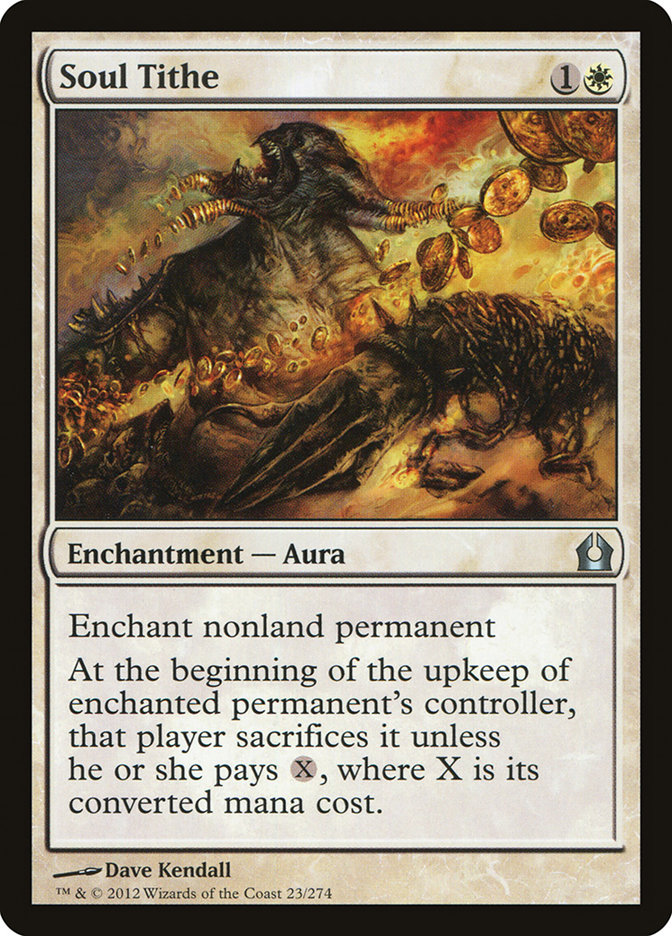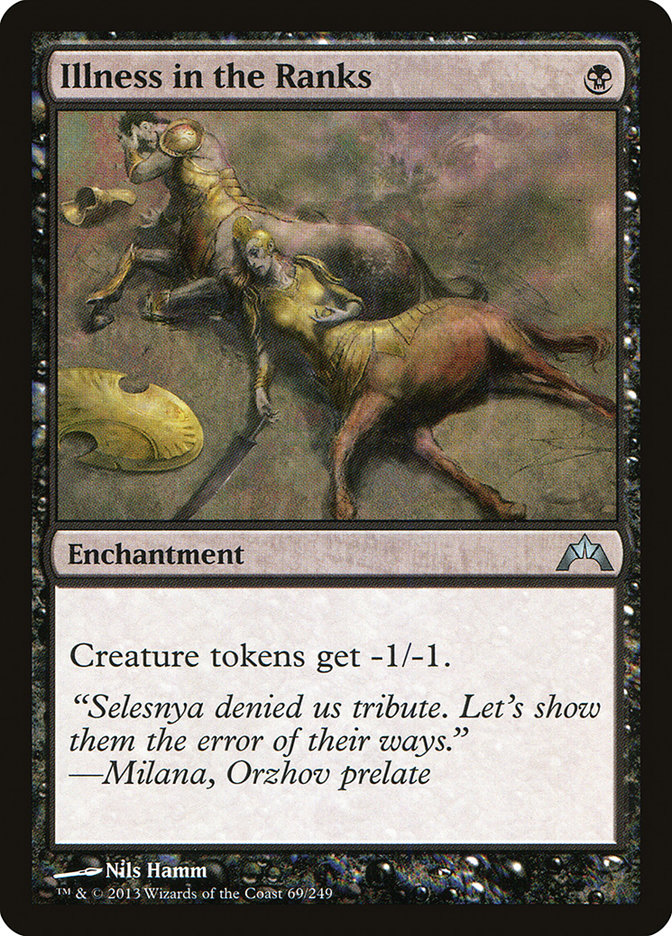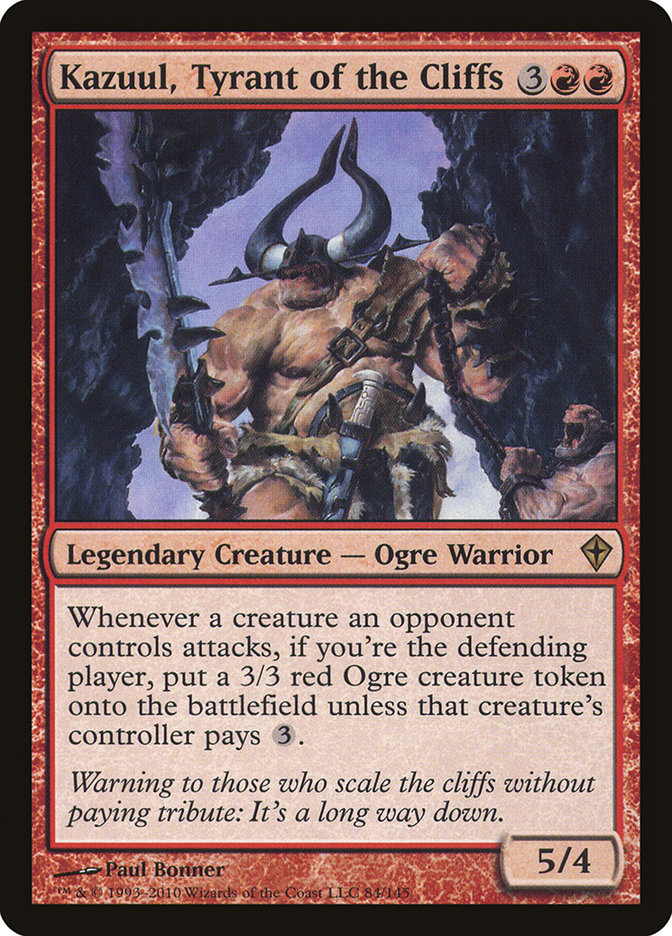This past Monday, 18 April, was the deadline for those with United States connections to file their tax forms with the IRS. While “Tax Day” traditionally is 15 April, there are some interesting interactions with Emancipation Day in the District of Columbia that can push the date back by a day or even a full weekend.
It’s common sport to grouse about taxes, but I consider what I pay to be fair. To be sure, if I envisioned my entire tax bill going to support, say, a gallery show put on with zero taste and even less artistic merit, I might have reason to object, but it’s just not true. For all the benefits I seldom have to think about, my taxes are a pretty good deal.
Of course, not all taxes are fair, particularly in Magic. The idea of “taxation” takes many forms in the game, from the iconic and still-played Land Tax to the War Tax of Mercadian Masques and all manner of confiscations.
From tolls to tithes and the bureaucracy behind all of them, here’s my look at the taxes of Magic.
Tolls of Several Varieties
“Toll” is one of those funny words in English with separate meanings stuffed into the same letters and sounds. On the one hand, and closely related, are the taxation definition and its extension to any sort of loss or damage taken (as in Mire’s Toll). Equally valid but of a far different meaning is the ringing of a bell, either the sound or the action. The original Innistrad has two black cards showing the different meanings of “toll” in their respective flavor texts, Night Terrors and Maw of the Mire.
The taxation meaning is what really interests me here. On the planes of Mercadia and Ravnica, both notable for having relatively stable and well-developed social structures, tolls take a monetary form. In addition to the Port Inspector from Mercadian Masques, two cards from Ravnica block, Courier Hawk and Dimir Cutpurse, reference monetary tolls, the former mentioning the Courier Hawk’s origins as a way to dodge toll roads and the latter describing how the “guild that didn’t exist” took its silent cut.
On other planes, tolls are taken in blood instead. The Gatekeeper of Malakir from Zendikar recalls a more peaceful time, when extortionate Vampires were the greatest of an adventurer’s worries. The Blood-Toll Harpy from Theros is a reflection of the mythical creatures’ greed.
Fee and the Droning Bureaucrats
Say hello, Port Inspector.
Such a marvelous list he rattles off! Not surprisingly, when it comes to fees, even though there’s only one other Magic card that references “fees” in the flavor text (and none with a singular “fee” that I could find), it represents Port Inspector’s kindred spirits: the Droning Bureaucrats.
At its best, bureaucracy creates a fair and efficient system of administration, with the right people making the right decisions for the government. At its worst, bureaucracy creates misery though inaction and callous indifference.
(If you ever meet me in person, don’t get me started on the nightmare that is filing for some kind of benefit like the Supplemental Nutritional Assistance Program, because you won’t get me to shut up easily. You want a form? Virginia’s Department of Social Services has your form. I’m a university-educated dude who manipulates words for a living, and that monstrosity of a form makes my brain hurt. Now imagine being functionally illiterate and trying to get it filled out.)
Back on Ravnica, the Azorius have their virtues and their virtuous; Lavinia of the Tenth is an eminently respectable character, as is the clever and self-sacrificing Vedalken hussar Modar Bejiri. (While Doug Beyer’s story about Modar Bejiri, “The Hussar’s Last Mission,” seems to have disappeared from the official Wizards of the Coast site, it was preserved on an outside wiki.) But they also have their Droning Bureaucrats side that seems to take pleasure in depriving others of their money and their time.
It’s not as if the Azorius have a monopoly on such deprivations in Ravnica, either…
Tithing Rings
The idea of the tithe is almost as old as religion itself. From ancient Mesopotamia ‘s “tenth for the gods” to the pauper’s tithe in Deuteronomy, zakat in Islam, and many more examples around the world, giving a portion of one’s goods or income to one’s faith is among the ways worshippers support their faiths.
It’s no surprise, then, that Magic would borrow the language of tithing, albeit putting a gamer’s spin on things.
The original Tithe borrowed from the flavor of Land Tax, as the side-by-side look above shows. Later on, though, the meaning of “tax” in Magic parlance shifted from the Land Tax idea toward a theme of making the opponent pay extra mana or other resources. The Legacy deck name “Death and Taxes” plays on both this new meaning of “taxing” an opponent and the seeming certainty of the deck’s eventual victory.
In card names (but never flavor texts — another curiosity), the idea of a “tithe” pops up next in Guildpact, on Spelltithe Enforcer. On the plane of Ravnica, the sapient Elephants called “Loxodon” are notable for their spiritual qualities, the Spelltithe Enforcer is a Wizard, not a Cleric, and seems to be on the shadier side of things. Note the new flavor of forcing the opponent to pay one generic mana or else lose a permanent on casting a spell. This flavor is echoed on the Planar Chaos card Mana Tithe and Magic Origins mono-white maven Archangel of Tithes.
On the Return to Ravnica and its follow-up Gatecrash, the spiritual dimensions of the “tithe” became more literal and obvious. The card Soul Tithe has literal coins taxing the Demon depicted on it, while Syndic of Tithes, a representative of the corrupt “Church of Deals” or Orzhov Syndicate, similarly holds money on a platter.
A more fantastic “tithe” is paid not with goods or money or even mana but blood. Two cards from near each other in Magic’s history tell that tale. The Tithe Drinker from Dragon’s Maze has a clear Orzhov connection, while Blood Tithe isn’t from a specific known setting that I can identify but is evocative nonetheless.
Take a peek back at Spelltithe Enforcer. Notice the use of the word “tribute” in the flavor text? That brings me to…
Tribute
Another of those charming words with multiple meanings, the evocative “tribute” originally referred to a payment, monetary or otherwise, made by a lesser country to a more powerful one — basically, a “please don’t kill us” fee. The most obvious recent use of this idea is on the tribute mechanic from Born of the Gods, which offered a choice between +1/+1 counters added to the tribute creature or some dire consequence.
“Tribute” also appears in a number of card names and flavor texts. While Ancestral Tribute seems to refer to an honor paid, Tribute to the Wild clearly shows the loss (in this case, of an artifact or enchantment) that ties into the taxation theme. The other four cards with “Tribute” in their names — Blood Tribute, Infernal Tribute, Phyrexian Tribute, and Tribute to Hunger — are more ambiguous, evoking both meanings at once.
Similarly, while some flavor texts use the more general meaning of tribute, such as Emerald Oryx, cards such as Illness in the Ranks (the Orzhov again!) and Kazuul, Tyrant of the Cliffs use the more specific meaning of a payoff in exchange for safety.
Among the more amusing hangers-on of the legendary Kazuul — who lived, it must be noted, not on some economically sophisticated plane such as Mercadia or Ravnica but the wild world of Zendikar — is Kazuul’s Toll Collector, a quirky name for the set it’s in and also a good place to draw this article into a closed circle.
What’s your favorite mechanic or flavor tied to taxation?


